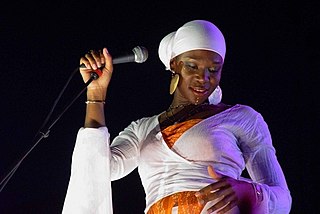A Quote by M. F. K. Fisher
People ask me: "Why do you write about food, and eating, and drinking? Why don't you write about the struggle for power and security, and about love, the way the others do?" . . . The easiest answer is to say that, like most other humans, I am hungry.
Related Quotes
When I decided to write about my brother and friends, I was attempting to answer the question why. Why did they all die like that? Why so many of them? Why so close together? Why were they all so young? Why, especially, in the kinds of places where we are from? Why would they all die back to back to back to back? I feel like I was writing my way towards an answer in the memoir.
The thing that has always baffled me about people's perception of my writing is the sense that I'm a very controversial, opinionated, polarizing person. I feel like I write about things that I'm interested in, and I describe why they're interesting to me. I could be negative, I guess. It's far easier to write why something is terrible than why it's good.
The people who review my books, generally, are kind of youngish culture writers who aspire to write books, or write opinion pieces about what they think of Neil Young, or why they quit watching ER or whatever. And because of that, I think there's a lot of people who write about my books with the premise of, "Why this guy? Why not me?"
There's no reason why you can't say "August Wilson, playwright" even though all of my work, every single play, is about black Americans, about black American culture, about the black experience in America. I write about the black experience of men, or I write about black folks. That's who I am. In the same manner that Chekhov wrote about the Russians, I write about blacks. I couldn't do anything else. I wouldn't do anything else.
The age of the book is not over. No way... But maybe the age of some books is over. People say to me sometimes 'Steve, are you ever going to write a straight novel, a serious novel' and by that they mean a novel about college professors who are having impotence problems or something like that. And I have to say those things just don't interest me. Why? I don't know. But it took me about twenty years to get over that question, and not be kind of ashamed about what I do, of the books I write.
We ask ourselves all kinds of questions, such as why does a peacock have such beautiful feathers, and we may answer that he needs the feathers to impress a female peacock, but then we ask ourselves, and why is there a peacock? And then we ask, why is there anything living? And then we ask, why is there anything at all? And if you tell some advocate of scientism that the answer is a secret, he will go white hot and write a book. But it is a secret. And the experience of living with the secret and thinking about it is in itself a kind of faith.
I write about the power of trying, because I want to be okay with failing. I write about generosity because I battle selfishness. I write about joy because I know sorrow. I write about faith because I almost lost mine, and I know what it is to be broken and in need of redemption. I write about gratitude because I am thankful - for all of it.




































